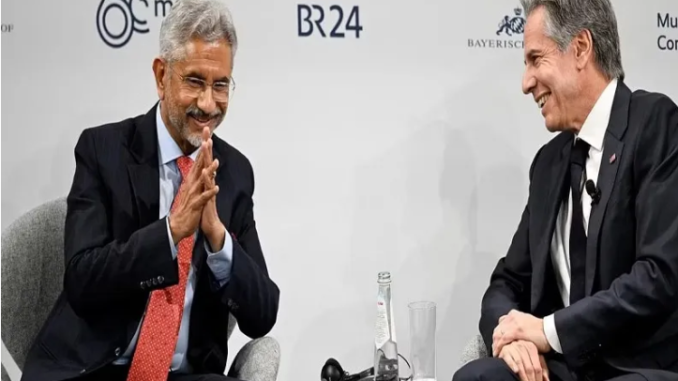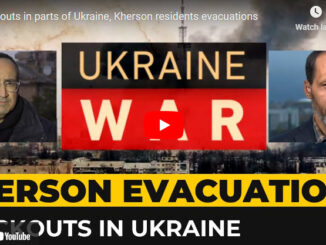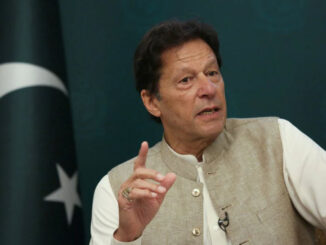
The paradigm that he shared with everyone can be described as Hyper-Realist because it explicitly articulates one’s national interests instead of leaving them ambiguous like the Neo-Realist one does.
Indian Prime Minister Narendra Modi has conceptualized his country’s growing role in global affairs over the past few years as that of the Vishwaguru, or world teacher, which his External Affairs Minister (EAM) Dr. Subrahmanyam Jaishankar just proved in his latest defense of its Russian oil purchases. He was asked about this subject during his interactive session with US Secretary of State Antony Blinken, to which he wisely responded as follows in line with his civilization-state’s diplomatic traditions:
“Is that a problem, why should that be a problem? If I am smart enough to have multiple options, you should be admiring me. Is that a problem for others? I don’t think so, suddenly in this case. We try to explain what are the different pulls and pressures that countries have. It’s very hard to have that unidimensional relationship.
I do not want you, even inadvertently, to give the impression that we are purely and unsentimentally transactional. We are not.
We get along with people, we believe in things, we share things, …but there are times when you are located in different places, different levels of development, different experiences, all of that gets into it. So life is complicated, life is differentiated… Good partners provide choices, smart partners take some of those choices.”
The paradigm that he shared with everyone can be described as Hyper-Realist because it explicitly articulates one’s national interests instead of leaving them ambiguous like the Neo-Realist one does. A recent example of this from him was his explanation of India’s attitude towards competition with China that was analyzed here. As guided by Prime Minister Modi, EAM Jaishankar envisages India multi-aligning between all key players in the global systemic transition, but importantly remaining non-allied.
The foreign policy flexibility that this affords those who practice this Hyper-Realist model of International Relations is incomparable since it incentivizes other countries to compete with one another in a friendly way to partner with India on whatever it may be such as energy in the example that he elaborated on. Without the multiple options that this paradigm provides, countries could fall victim to systemic pressures stemming from the Sino-US global competition, thus forcing them into zero-sum choices.
In such circumstances, they’re bound to offend one or the other by choosing to partner with their rival, thus worsening the security dilemma between those two superpowers as well as risking problems in their own ties with whichever of those two they decline to partner with if they’re offended. Furthermore, they’d risk becoming disproportionately dependent on them if one deal leads to another and so on and so forth, which could result in them being exploited as pawns on the larger chessboard.
The most effective way to preemptively avert that dark scenario is to have as many options as possible at all times, which could influence those two superpowers, the several Great Powers below them, and the medium powers further down the international hierarchy to give them the best deal. If the country at the center of this friendly competition becomes displeased with whatever deal it may be, then they’ll have others to fall back on, thus encouraging their partner to respect the terms and not exploit them.
As EAM Jaishankar clarified, this approach isn’t “purely and unsentimentally transactional” since sometimes a country might have a fondness for a given partner and therefore choose them over others even if some of the terms that their competitors are offering might be more favorable on the surface. That’s because they feel more comfortable working with an existing partner due to positive experiences and/or might have heard about others’ bad experiences with their competitor.
Even so, it’s important to remember that each country’s position within the international hierarchy at any given moment and their own unique challenges also influence their decisions, which is why they shouldn’t be judged according to foreign morals, ethics, principles, standards, and values. In the example of India’s Russian oil purchases, he’s signaling that his country’s defiance of Western sanctions isn’t to spite them, but to take advantage of this economic opportunity in order to maintain growth and stability.
Reflecting on his words, EAM Jaishankar embodied the Vishwaguru concept by sharing some much-needed Hyper-Realist wisdom about how best to multi-align in today’s complex international environment, which could inspire India’s fellow partners in the Global South to follow its lead. His words were extra impactful because he said them while sitting next to Blinken, who opposes all purchases of Russian oil, yet America’s top diplomat could only smile because he knew that his counterpart was right.
Source: Andrew Korybko Substack:



